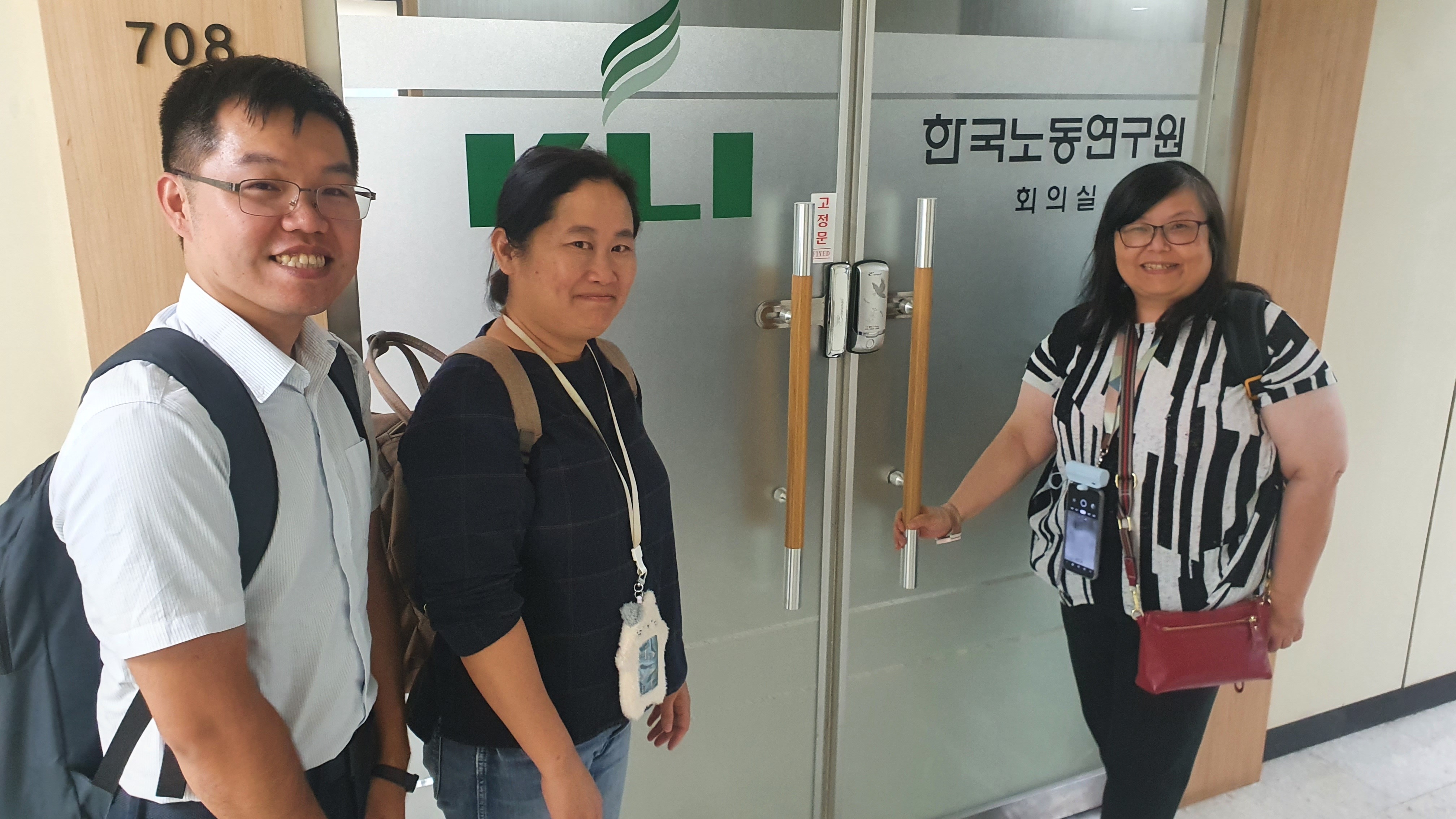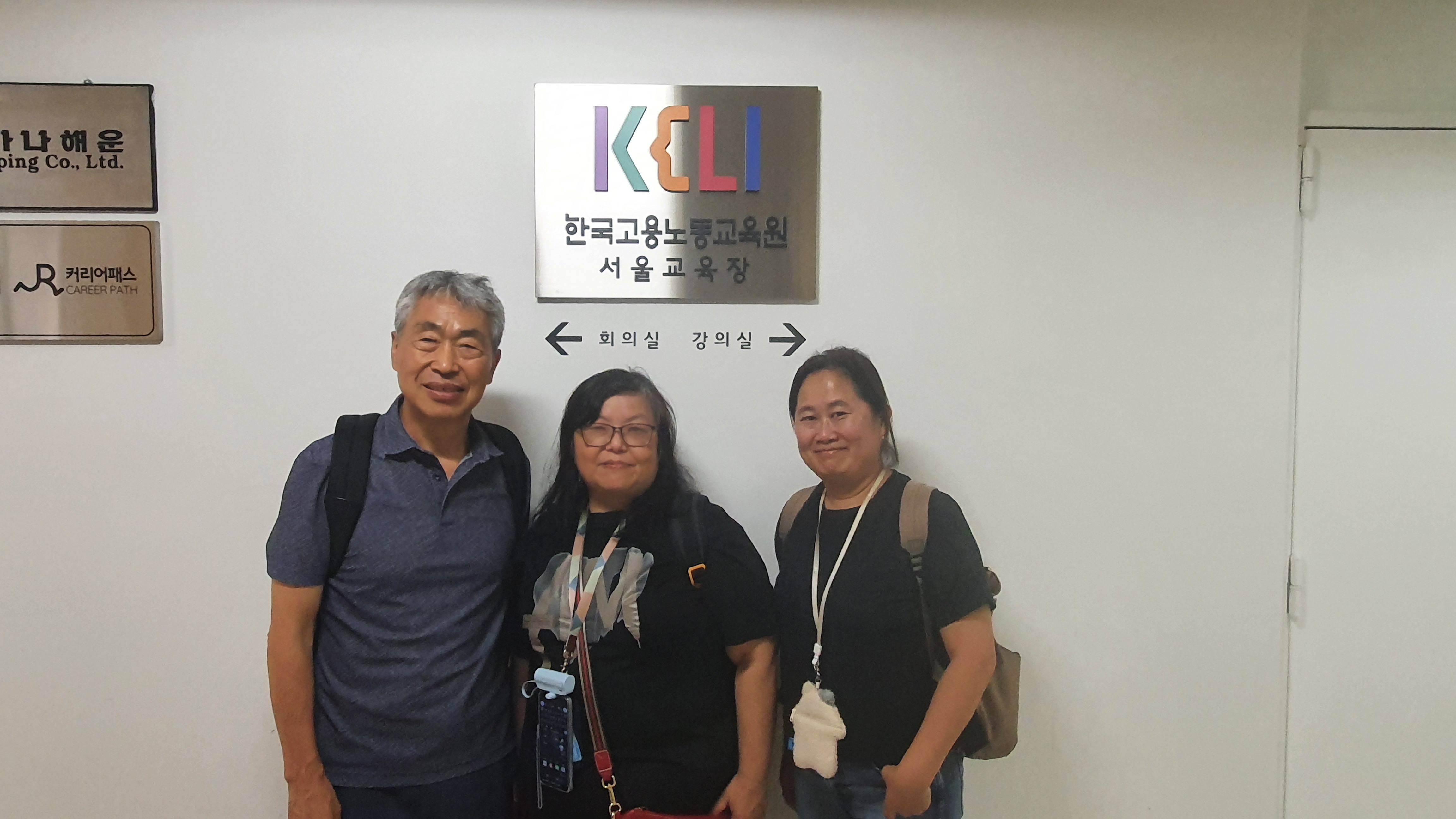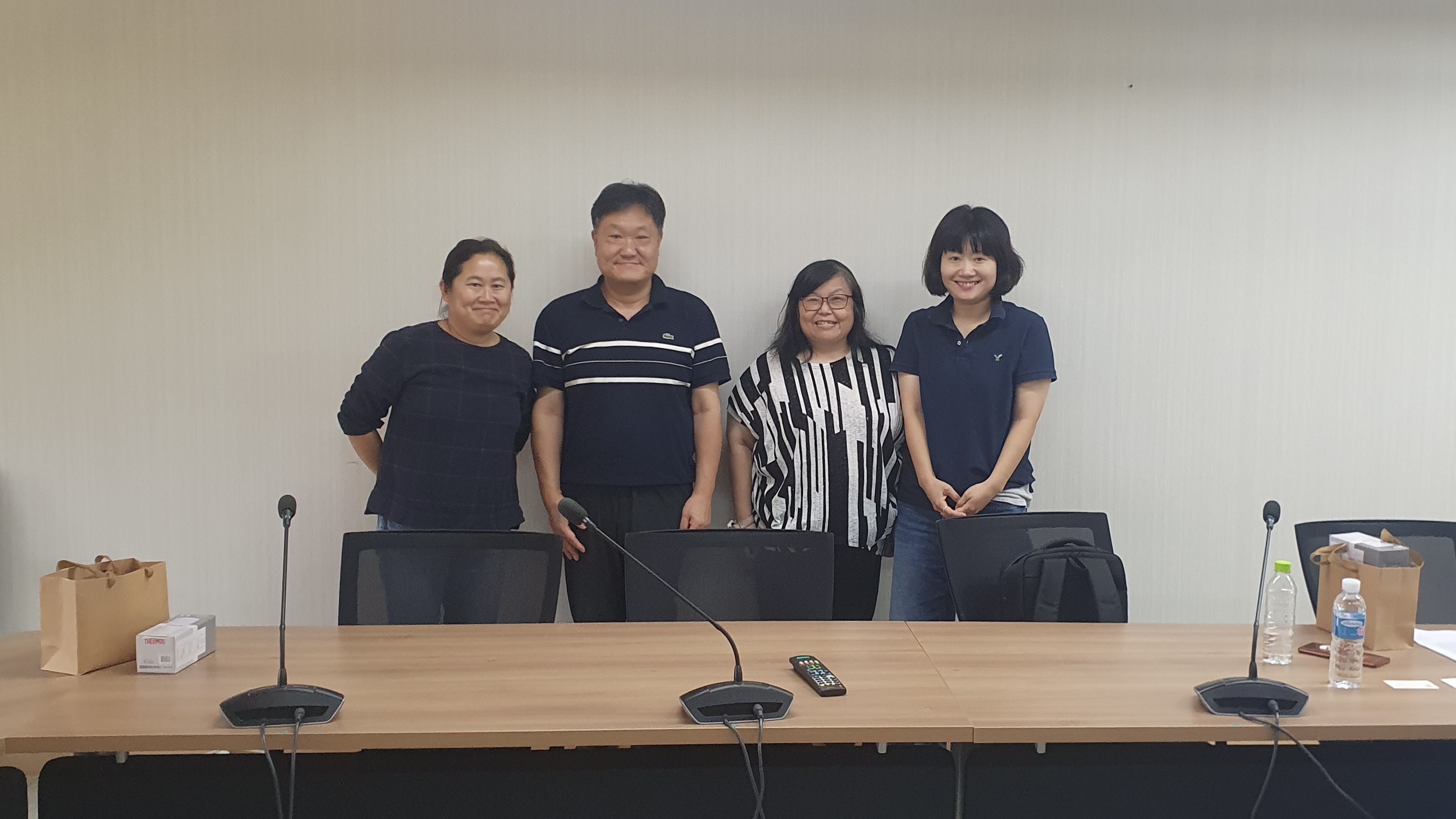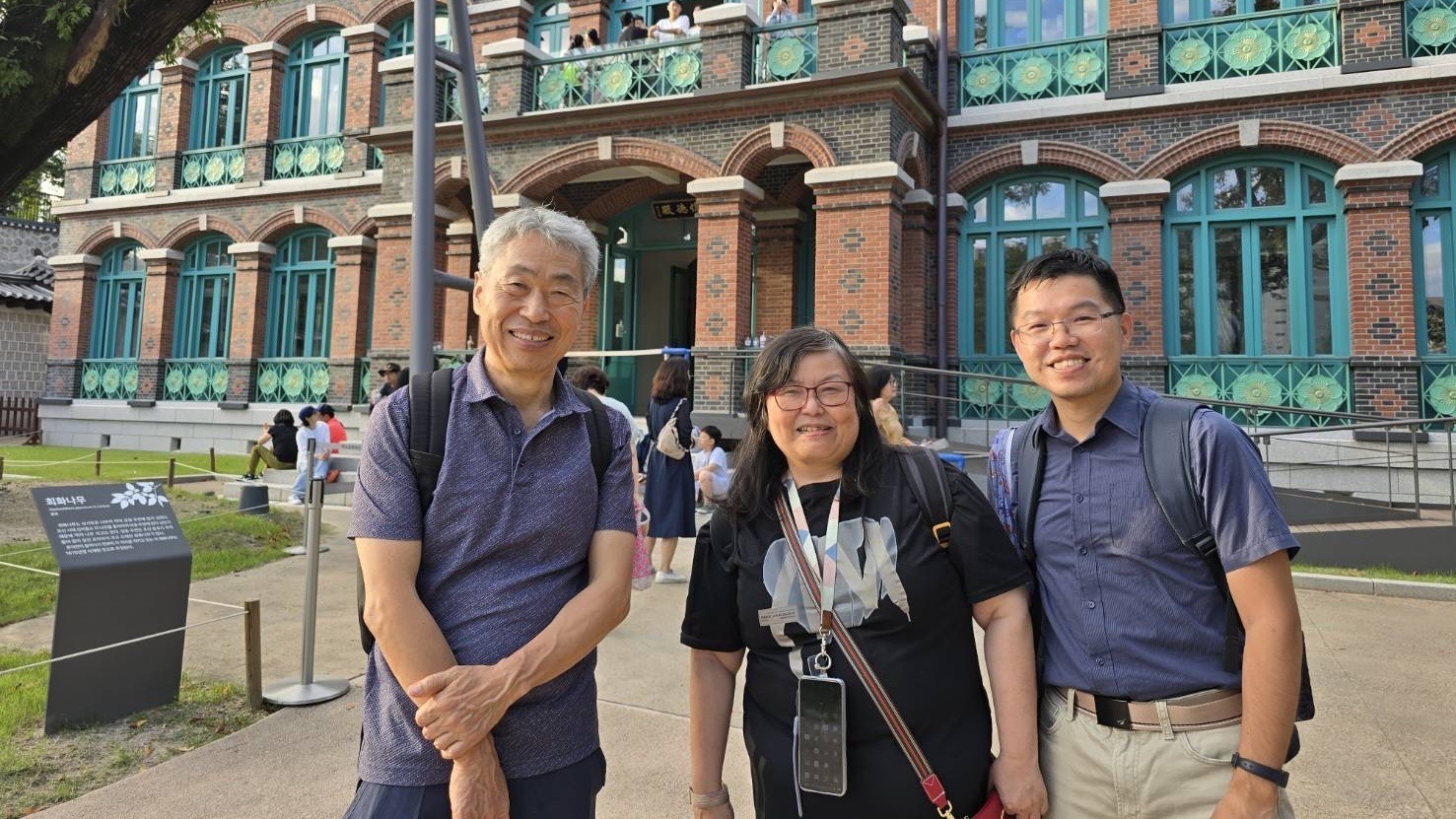Exchange Visit to the Korea Labor Institute (KLI)(2024/09/27-10/01)
2024/09/27-10/01
Exchange Visit to the Korea Labor Institute (KLI)
With the growing challenges posed by globalization and digital transformation to the structure of the labor market, effectively conducting labor market and workplace environment surveys has become a critical issue for governments and research institutions worldwide. From September 28 to September 30, a team led by Professor Po-Lien Chen from National Sun Yat-sen University, accompanied by Professor Nien-Chi Liu and Ph.D. candidate Ming-Che Cheng, both from National Taiwan University, visited the research team of the "Workplace Panel Survey" (WPS) at the Korea Labor Institute (KLI). They also engaged with renowned labor rights scholar Professor Yongjin Nho from Seoul National University of Science and Technology.
KLI is a national research institution in South Korea with the vision of becoming a "global policy research institute that enhances the quality of life for workers and achieves national happiness through work." KLI specializes in employment and labor issues, leveraging systematic surveys, research, and analysis of various labor relations topics to help formulate rational labor policies and raise public awareness of labor issues.
The institute conducts research projects across multiple areas, including labor market dynamics, employment policies, labor relations, human resource management, labor law, labor welfare, labor insurance, and advanced leadership training programs for labor-management relations.
The purpose of this visit was to learn from South Korea's successful experience in labor market surveys. Through in-depth discussions with KLI experts, the delegation aimed to understand their research methodologies, data collection techniques, and the practical implementation of the Workplace Panel Survey (WPS), including the processes of database construction, encountered challenges, adjustments made, and other key considerations. This exchange seeks to provide valuable insights for conducting similar surveys in the future. Additionally, the delegation explored possibilities for future collaboration, aspiring to establish a cooperative relationship with KLI and promote academic partnerships in the field of labor market research.
On the first and second days of the visit, the delegation toured the Seoul Training Center of the Korea Employment and Labor Education Institute (KELI). Through an in-depth interview with Professor Yongjin Nho, they gained deeper insights into the current state of labor relations expertise within South Korea's academic community, as well as the pressing human resource management and labor relations issues currently of interest to the corporate sector. Additionally, the delegation sought advice on the key topics and practical applications emphasized by South Korea’s academic institutions, government, and private sector in the field of labor studies.


On the third day of the visit, the delegation engaged in discussions with two members of the KLI's Workplace Panel Survey (WPS) team, led by Dr. Jungwoo Kim and researcher Dr. Kimin Kim. The main focus was on the development history of WPS, the project management process, budgeting, and human resources. The team also gained a deeper understanding of the survey process and WPS usage, and learned about the tacit knowledge involved in the practical implementation of such surveys.
Building a complex and comprehensive longitudinal database like WPS is not a task that can be accomplished by a single scholar. These types of databases require substantial resources, including funding, research personnel, technical support, and long-term project staffing for maintenance. Therefore, in South Korea, such long-term databases are built by research institutions like KLI and KRIVET, which rely on government funding and interdisciplinary collaboration, providing empirical foundations for academic research and policy-making.
Professor Nien-Chi Liu stated, "Research on corporate human resource management and labor relations truly requires the use of longitudinal data as the foundation for the study. Compared to static cross-sectional data, longitudinal databases can provide a deeper understanding of the causal relationships in organizational changes. They allow for tracking the changes of the same group or organization over time and observing the long-term impact of policy or institutional reforms on the workplace." However, building a large-scale longitudinal database with a corporate focus is no easy task. It requires rigorous processes in areas such as questionnaire design, data collection, and maintaining sample consistency to ensure the continuity and completeness of the data. Through this interview, the delegation learned that the South Korean government has made significant investments in building longitudinal data on organizations and human resources. Various types of labor and human resource longitudinal databases are primarily established by government-supported research institutions.


Overall, the visit to the Korea Labor Institute has broadened our perspective on labor market research. From the challenges of data collection to the empirical evidence for policy-making, these insights will serve as crucial guidance for our center’s future surveys in related fields. Looking ahead, we hope for more opportunities to collaborate with South Korea in this area, working together to address the challenges and opportunities in the labor market. We also aim for our center’s database to, like KLI’s WPS, become a powerful tool that supports academic research and enhances workplace environments in enterprises.

